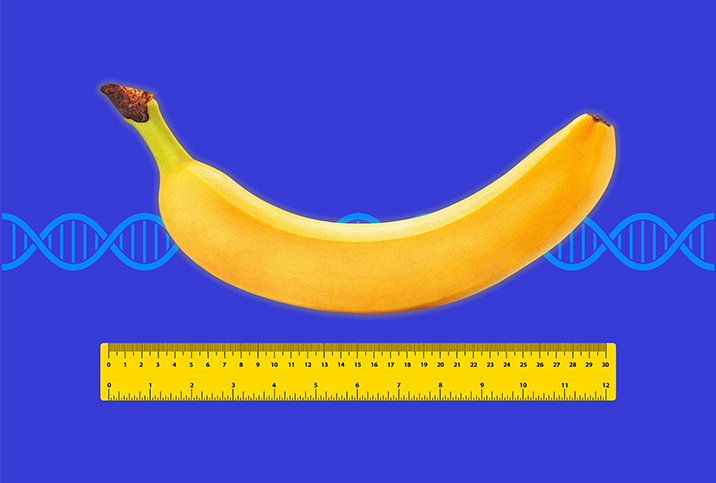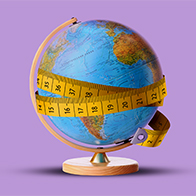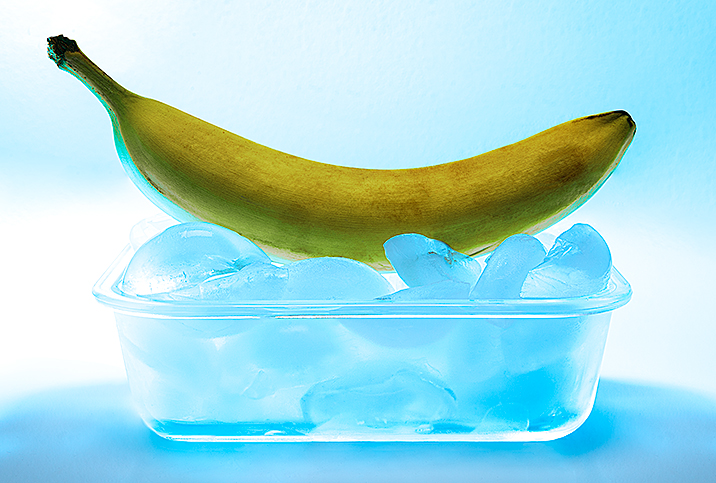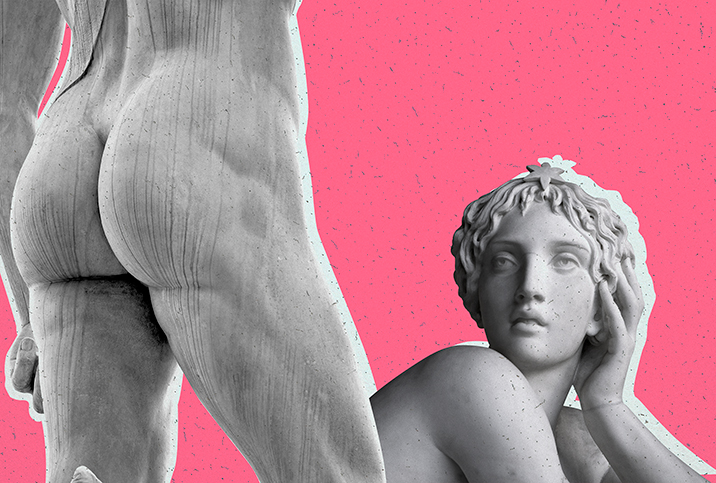Is Penis Size Genetic?

Ah, the age-old question: "Is my penis big enough?"
The average penis size is 5.1 inches hard and 3.6 inches flaccid, according to a 2014 study published in BJU International that measured 15,000 penises from around the world. Penis size and what influences it have been the topic of many a teen's curiosity.
In fact, even adults are interested in the question of how their penis stacks up to the rest of the world; so much so that there is an entire Reddit forum dedicated to the topic. Here, men ask other Redditors whether their penis size—both girth and length—is small, large or normal, while others confess the shame they feel about their size or ask other penis-related questions, from health to condom size.
Whether someone's penis is small or large is often irrelevant, but the question of why continues to fascinate us. Can you tell penis size just by looking at someone? How about judging by the size of their fathers? Is a big penis genetic or just plain random? What about the smaller ones?
The question of whether penis size is hereditary—that is, influenced by a father, grandfather or great-grandfather—is a "great question," according to Jamin Brahmbhatt, M.D., a urologic and robotic surgeon and the managing director of the Personalized Urology and Robotics (PUR) Clinic in Orlando.
However, he said this question does not have an easy answer.
Your penis and the Y chromosome
The short answer is yes, genetics and the Y chromosome are involved, said Tariq Hakky, M.D., a urologist and the CEO of Atlanta Cosmetic Urology.
"Men get their Y chromosome from their dad, who got theirs from their grandfather, which is also where the sex-determining region [SRY] gene and the genes that heighten testosterone [come from]," he said.
The SRY gene is responsible for providing the instructions for making the sex-determining region Y protein, which is involved in male-typical sex development including the penis and testicles. Testosterone is also responsible for turning a fetus into a male.
"What the penis will look like, in terms of girth and length, is a combination of influences from the Y and X chromosomes," Brahmbhatt said. "The Y chromosome has 10 percent of the genes that the X chromosome has, so it is safe to assume the X chromosome may also have a good amount of influence on many male factors, including the penis."
A 2010 study published in the International Journal of Andrology explained that androgens—the hormones, including testosterone, related to male sex development—are necessary for the development of the male penis in rodents. The Jost hypothesis, developed in the 1950s and '60s by French endocrinologist Alfred Jost, found the same to be true in humans.
But this isn't where the answer ends. While genes play a role in the look, shape and size of a penis, girth and length can be impacted by a number of other factors.
Important penis size factors
"There are other factors that affect penis size beyond your dad and grandad," Brahmbhatt said. "These include hormones, diet and environmental factors, both in the womb and after birth."
A mother's malnutrition during pregnancy can also play a role.
Hakky seconded these views, particularly pointing to the womb environment.
"With the advent of a lot of soys and estrogens, we're starting to see a shortening of [penis size] and loss of fertility in smaller testicle volume, because the pregnant mother has more estrogen in her system as well as other androgen-inhibiting factors in the environment," he said. "So, in utero, those spikes of testosterone may be blunted in certain men."
Brahmbhatt added that low amounts of testosterone during puberty may also affect the length of the penis.
The long answer then, Hakky said, is that while penis size is hereditary, it's also influenced by nurture as far as development goes. So you can thank your parents for your big (or small) penis.




















